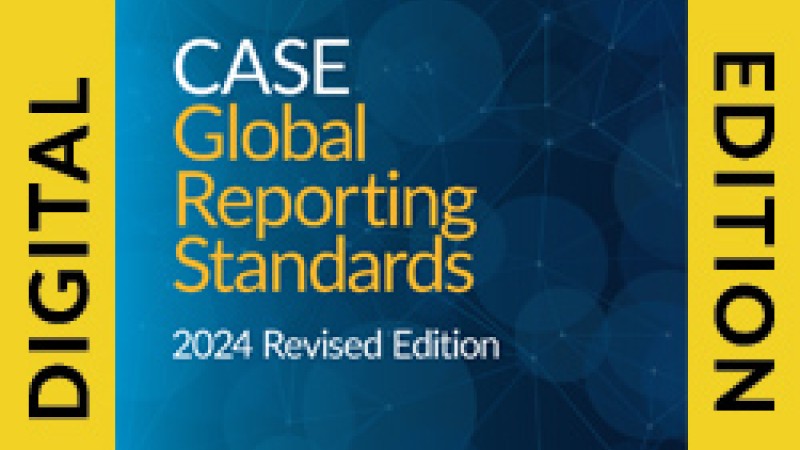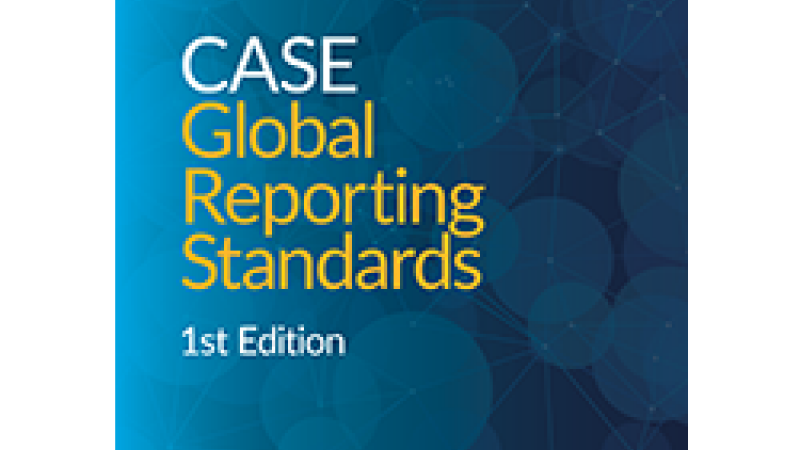
CASE Global Reporting Standards
Upcoming Webinar:
Why are the CASE Global Reporting Standards Important to You?
Data reveals secrets and tells stories. It enables benchmarking, so that institutions can review their progress and chart productive ways forward. By expanding our data sharing on a global scale, we can find communities of similar institutions more easily–and can find models and inspiration.
CASE is proud to be the leader tracking voluntary support while also providing community-derived foundations from which the advancement profession operates. The CASE Global Reporting Standards will give our members the opportunity to benchmark with their peers across the globe providing more useful observations and insights than ever before.
For me the Global Reporting Standards are important because they give us a framework, guiderails to help us to develop this important work within our own institutions and according to our own contexts.
Or buy both at a 10% discount.
Become a Standards Scholar:
CASE Podcasts:
Voices from the Field: Episode 30: A Conversation with Cara Giacomini – The Importance of Capturing and Analysing Institutional Data
Our guest for this episode is CASE’s own Cara Giacomini, Chief Research & Data Officer who also leads the CASE AMAtlas team. She takes us back to basics in discussing why the capturing and analyses of data is critical for institutions of any size, as well as the ‘where’ and ‘how’ to begin in incorporating data to understand your institution. Through explaining the resources and support that AMAtlas provides, Cara highlights how the recently released CASE Global Reporting Standards is creating a foundation for global benchmarking and what it means to be working in an ethical manner within the educational advancement community.
Leadership Conversations: Episode 10: Standards Matter in Advancement: A Conversation About the CASE Global Reporting Standards
A Leadership Conversation with ;Matthew Eynon, Vice President for College Advancement, Franklin & Marshall College, and Brian Hastings, President and CEO of the University of Nebraska Foundation
For the first time, the educational advancement profession worldwide has a global set of standards for its work. Founded in the CASE Statement on Ethics and the Principles of Practice for Professionals in Educational Fundraising, Alumni Relations and Communications and Marketing, the recently published CASE Global Reporting Standards usher in a new era for transparency in educational philanthropy. The CASE Global Reporting Standards set the stage for benchmarking across other advancement disciplines in future editions. This conversation with the fearless co-chairs of the Standards Working Group, Matty Eynon and Brian Hastings, provides insight into this work and why the Standards are important for every advancement professional, trustee, and institutional leader.
Contact us:
For questions related to the CASE Global Reporting Standards, please contact [email protected].
For media inquiries related to the CASE Global Reporting Standards, please contact [email protected].



